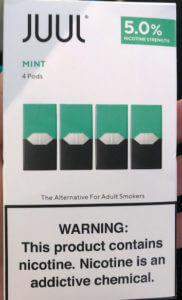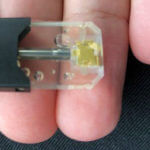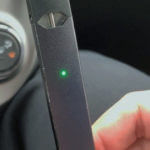
The lawsuits are stacking up against JUUL e-cigarettes to put stricter regulations on the marketing and sale of the popular vaping device.
Just last week, San Francisco moved to ban the sale and distribution of E-cigs all together, to try and curb youth vaping; At least until the U.S. Food and Drug Administration (FDA) completes a study on its health effects, according to an article by Mitchell Gunter of the Observer. JUUL Labs is based out of San Francisco and was the primary target of the ban.
And San Francisco isn’t alone.
Public health researchers such as the American Heart Association and Centers for Disease Control and Prevention (CDC) have joined forces to help spread the word about the dangers of e-cigarettes.
JUUL Lawsuits Underway

On May 22, two teens from Alabama filed a lawsuit claiming to have become addicted to e-cigarettes while in their late teens. In their complaint, which was filed in the U.S. District Court in Alabama’s Northern District, Western Division, the teens say they are hoping to “redress the harm already sustained and to prevent future harm to others.” They go on to say they became addicted to nicotine by using JUUL e-cigarettes and now suffer nicotine ingestion-related complications.
Just a week earlier, on May 15, North Carolina became the first state to sue JUUL over its alleged marketing practices. The state’s Attorney General Josh Stein filed the lawsuit in Durham County Superior Court, maintaining that JUUL was targeting young people as customers.
A class-action lawsuit that’s moving forward alleges JUUL’s practices mirror those of the traditional tobacco industry – the company designed a highly addictive product, failed to warn consumers properly about the addictive nature of the product, and then lured young people and teens in their advertising and marketing efforts by selling flavors that appeal to minors such as Mango and Fruit.



To help combat teenage vapers, the FDA recently unveiled stricter regulations on flavored e-cigarettes in convenience stores and gas stations and strengthened the requirements for age verification of online sales of e-cigarettes. A spokesperson for JUUL Labs said that the company will be deleting its social media accounts as well as continuing to monitor and remove inappropriate material from 3rd party accounts.
Not everyone supports the idea of banning JUUL devices.
Supporters of a JUUL-backed campaign called the Coalition for Reasonable Vaping Regulation argue that banning e-cigarettes impedes on the rights of people over the age of 21 who prefer vaping over smoking traditional cigarettes.

In the meantime, personal injury attorneys are preparing for an influx of vaping injury cases ranging from diacetyl related injuries, vape explosions, and false advertising or failure to warn consumers of the dangers of vaping.
Read more about the risks of vaping and e-cigarettes here.
Studies show teenagers who have tried vaping have risen by
1.5 million from 2017 to 2018. Across the nation, more than 3 million high
school students regularly vape. JUUL Labs reportedly retains more than 70% of
domestic e-cigarette market shares.

